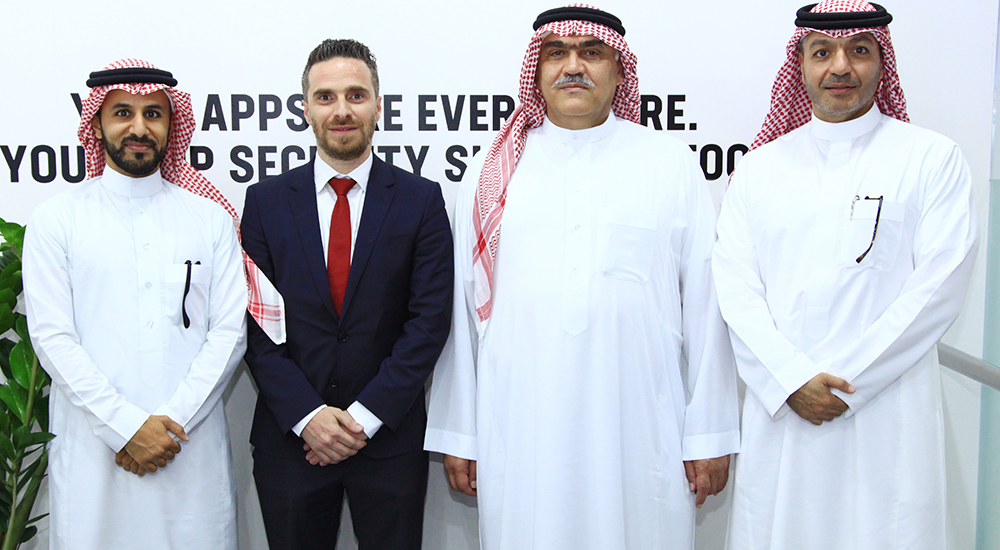Saudi Arabia’s Ministry of Energy using F5 portfolio to build up cyber defenses

Saudi Arabia’s Ministry of Energy outlined how it is adapting and maintaining its world-class defense against evolving global cybersecurity threats. A key component of the Ministry’s bid to reinforce its cybersecurity and digital transformation credentials entails working with application delivery and multi-cloud application services vendor, F5 Networks to protect online services. Ensuring robust security and available, agile service delivery is more important than ever.
The government expects local energy consumption to increase three-fold by 2030, which will require combining hydrocarbon-based energy sources with renewables, as well as driving a host of initiatives. To stay ahead of the curve, and to lay the foundation for future success, the Ministry deployed F5 BIG-IP Local Traffic Manager. This enables it to move beyond mere load balancing to achieve intelligent, granular network control based on server performance, security, and availability.
Because BIG-IP Local Traffic Manager is a full proxy, it is possible to inspect, manage, and report on all application traffic entering and exiting the network. It also helps simplify, automate, and customise application services faster and with greater predictably. Local Traffic Manager is augmented with F5 Advanced Web Application Firewall, to stop attacks before they reach applications, while also providing critical security controls to protect data both on-premises and in the cloud.
F5 Advanced Web Application Firewall addresses such challenges head on, providing malicious bot protection, application-layer encryption, API inspection, and behavioural analytics to defend against application attacks. It also addresses the problem of cybercriminals increasing use of automation to scan applications for vulnerabilities, attack account credentials, or cause denial of service.
With F5 Advanced Web Application Firewall, the Ministry uses proactive bot defences to stop automated attacks, leveraging a combination of challenge and behavior based techniques to identify and filter out bot traffic. Advanced Web Application Firewall also includes F5 DataSafe, which encrypts data and credentials at the application-layer—without having to update the application.
The Ministry’s work with F5 to date also encompasses F5 BIG-IP Access Policy Manager, which gives users easy, contextually secure and scalable access to applications and data, irrespective of device or location, from data centre and the cloud to SaaS-based or hybrid environments. Meanwhile, data centre and disaster recovery are handled by F5 Global Server Load Balancing to ensure the high availability of your global applications in all environments.
F5 Global Server Load Balancing distributes user application requests based on business policies, data center and cloud service conditions, user location, and application performance. Underpinned by the BIG-IP platform, the solution delivers high-performance DNS services with visibility, reporting, and analysis. It can also hyperscale and secure DNS responses geographically to combat DDoS attacks and deliver a real-time DNSSEC solution.
“Cyberattacks aimed at disrupting critical infrastructures are becoming more nuanced, advanced and difficult to spot. There can be no compromise when it comes to our defensive posture and we cannot afford any disruption or downtime. There is no margin for error as we expand, safeguard and diversify the Kingdom’s future energy security,” said Wahid S Hammami, CIO Ministry of Energy, speaking at Gitex Technology Week 2019.
“The threat landscape is vastly different than it was even a few years ago,” said Hammami. “A traditional Web Application Firewall was once enough to mitigate application layer attacks. This is no longer the case and keeping up with increasingly advanced attack tactics requires a step-change. Exploits are outpacing existing defences and, even when a traditional Web Application Firewall can mitigate the threat, the associated implementation and management can be problematic.”
“Attacks against organisations in charge of critical assets will only continue to increase across the world, and Saudi Arabia is no different. The challenge is complex and fast-changing, which is exactly why we need to work with experts like F5 Networks that can scale and adapt to our operational and service-delivery ambitions, as well as the evolving challenges we face,” added Hammami.





